#mash media
Explore tagged Tumblr posts
Text
— Transcript below the cut —
Nobody ever calls him Dave
The role of the lovably unlovable doctor in 'M*A*S*H' fits courtly David Ogden Stiers like a surgical glove.
by Arnold Hano
When David Ogden Stiers mentioned that his birthday was coming up, the M*A*S*H crew decided to throw a party – birthday cake, 35 candles, the works.
But David Ogden Stiers called it off, probably because he still considers himself the new boy on the block, something of an outsider. Stiers (it's pronounced STYers), who plays the stuffy Boston doctor uncomfortably assigned to the MASH unit, is a shy man who prizes his privacy.
And this shyness isn't helped by Stiers' feeling that he still doesn't belong on a show that features so talented an ensemble cast as Alan Alda, Mike Farrell, Loretta Swit, Harry Morgan, Gary Burghoff and Jamie Farr. Stiers replaced five-year veteran Larry Linville at the start of the 1977 season. But others have gone through the same problem. Mike Farrell, who came on as Capt. B.J. Hunnicutt after Wayne Rogers left, says he's ''simpatico with David. I was in his shoes. He's grabbed me as an anchor.'" But not tightly. ''We haven't socialized,'' Farrell says. "But that's only because he hasn't accepted the invitations we've offered."
If Stiers hasn't fitted in socially, everyone agrees he has adapted to the role swiftly. Alan Alda raves about Stiers. "I'm very fond of him. He's extremely skilled. It's such a pleasure to work with him. He comes up withterrific ideas." In an early script, Stiers presents Alda with a can of gourmet food to take on a date. Alda studies the label. "Wild boar goulash?" he says. And Stiers makes the OK circle with his index finger and thumb. Except instead of raising his hand, Stiers improvised a stiff horizontal sign, held tight to his belt. "'It was perfect," Alda says. "Exactly the way his character would make it."
Stiers enjoys the freedom of the M*A*S*H set, where he is encouraged to do whatever he thinks will work. His first episode has him chewing out Radar, the cherubic corporal. "At first I tried to be nice to him. Then I realized, I am not a nice man. So I shouted at Radar. Imagine! I shouted at Radar, possibly the most sympathetic character in the history of this tube."
Everybody was pleased. Burt Metcalfe, producer of the series and the man who hired Stiers, says, "David has this unique quality. He can be lovably unlovable."
Stiers glows. "There is an extraordinary working relationship on the set. If it gets any more positive, we'll all have goony smiles." It's so idyllic that Stiers, always a night man before, now rises at 5:30, not only to make sure he's on hand for the first call, but because he likes to stand on the deck of his one-room Hollywood apartment and watch the sun come up. "It's the most beautiful time of day." says Stiers. And he's totally alone.
David Ogden Stiers – he likes using all three names; nobody ever calls him Dave – is an only child. A tall, courtly man whose shiny dome makes him look older than his 35 years, Stiers was born in Peoria, Ill., in 1942 and moved to Eugene, Ore., when he was 15. As a kid, he played baseball on Peoria sandlots. "| would hit the ball and I'd stand, appreciating the loft. I was out before I took a step. My teammates weren't thrilled."
Soon they stopped asking him to play. What he did was read, play the French horn and the piano, sing in church, and gravitate toward the theater. "The only child is left a lot to his imagination,"' he says.
He was never much of a student, because he didn't care. "My folks sent me to a psychologist after I finished high school. I had been enrolled in the University of Oregon, but I flunked out. My folks sent me to night school. Again I flunked out. I didn't want to be there." The psychologist found nothing haywire; all David wanted was to give acting a chance.
He spent a year with community theater in Eugene, and in 1962 joined the California Shakespeare Festival in Santa Clara, Cal. For seven years he did only classical roles and somehow managed to support himself. Then he joined San Francisco's improvisational company The Committee, but left in 1970 to go to The Juilliard School in New York, to do something about a voice that was "Illinois flatness compounded by California flatness, that horrible back-in-the-throat speech.'' Juilliard, though, cured him nicely, and today his voice is rich and resonant.
But San Francisco had not prepared him for New York. "All the orchestras of the world converged every winter on Carnegie Hall, all the dance companies. And the theater knocked me out. I was almost convinced," Stiers says, "that was the best of all possible worlds. That is, until I'd get out of the theater and feel that abject hostility on the street, see people talking to themselves and other people with open, running sores." It was a contrast Stiers found hard to adjust to, with "the filth on one hand and the cultural life rich as whipped cream on the other."
In 1974 he appeared with Zero Mostel in 'Ulysses in Nighttown,' and two months later opened in the musical 'The Magic Show,' playing an aged alcoholic magician. After nine months he'd had enough.
"I ran screaming from New York and settled down in the Oregon woods." His agent, Susan Smith, asked him to come to Hollywood to meet producers. He made a couple of films, in also-ran parts, appeared in the brief series Doc, did the pilot for Charlie's Angels and was offered a regular Angels role, which he turned down because he would have had to sign for seven years. He played three episodes on The Mary Tyler Moore Show as the station manager who hassled with Mary and Lou Grant over pay raises. M*A*S*H producer Burt Metcalfe saw one episode.
"Larry Linville had annouced he was leaving M*A*S*H," Metcalfe recalls. "We had to fill the hole. Larry was a brilliant actor, but we had allowed the Major Burns character to become somewhat childish. I thought we should go in another direction. Find a character who'd be a far more formidable opponent for Hawkeye and B.J. I had an image of William Buckley in mind. Then I saw David."
Nobody else was ever interviewed.
In January of 1977 Stiers signed a two year contract. He sees his character, Maj. Charles Emerson Winchester, as a man who has studied in Europe and summers in Maine. "I keep trying to lay in traces of very Down East expressions. 'Thank you' has become 'Th'k yo.' He is a petty man. The more threatened he gets, the richer his language becomes. In one speech I call Hawkeye and B.J. 'cretins and Visigoths.' That's got to be a television first." Especially pronounced 'cretins', British style.
That's his life these days. During one extended break he went back to Peoria for a family reunion, and though he enjoyed the reunion, he did not relish playing the role of star. "I'm happy not to be recognized. When I go to a restaurant I like to eat, undisturbed. I hear horror stories about Burt Reynolds and other stars, who never expect to get more than three forkfuls to their mouths consecutively before being interrupted for autographs. I am definitely a 33-fork man so far."
So he eats, usually alone, in a French restaurant on Vine, below Hollywood Boulevard, and then he walks home, to his barely furnished bachelor apartment where he lives alone.
Marriage remains in the abstract. "I expect it to happen, but I do not expect to work to bring it about. I look forward to a rewarding, loving relationship. But it is nowhere on the horizon." He has one special woman friend, but she lives in San Francisco nearly 400 miles away.
He'd like to make a movie in something other than a minor part, he'd like to do more Broadway theater and he'd like to go to Europe, which he has never visited. But that, too, is later.
"What I want to do eventually is settle down in Oregon,'' he says. "Go home and shut up and listen to the wind and the pine trees. Hollywood furthers your career. But you don't make friends."
Meanwhile, he remains in his Hollywood apartment, where he listens to classical music. Recently he bought a Richard Strauss autograph. "I walked into a place in Beverly Hills. Somebody had left the autograph on consignment for $225. I said, "I'll take that." Now I listen to 'Rosenkavalier' and nearby is a photograph of Strauss with a letter to a friend, signed by him. It connects. It puts him into the same room with me."
Otherwise, of course, he's alone.
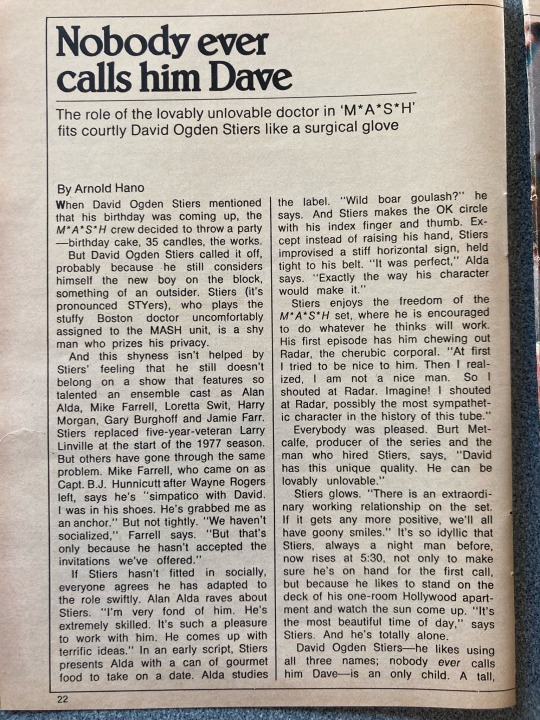
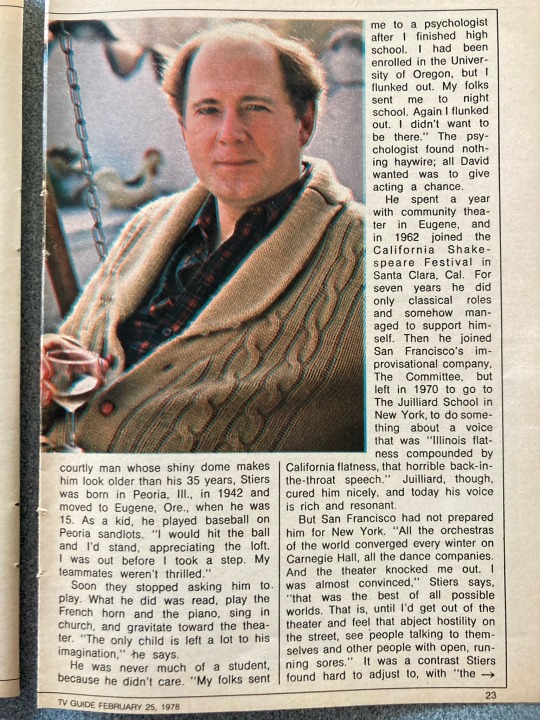
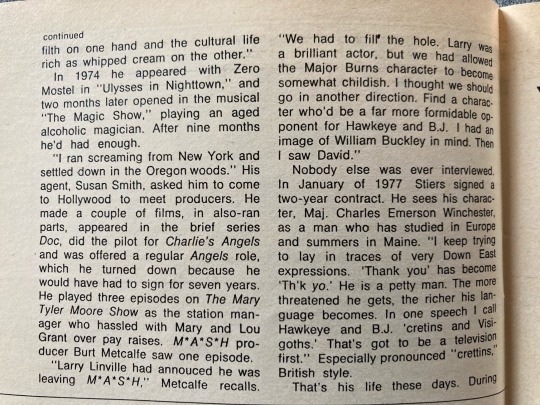
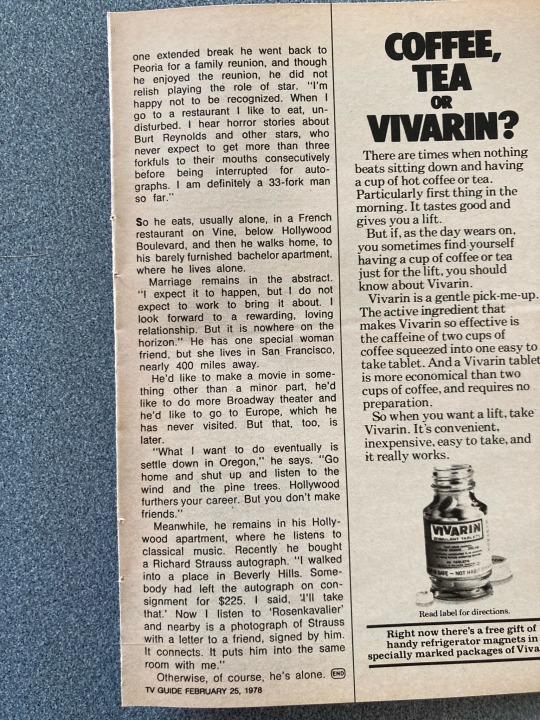
#david ogden stiers#thank you for uploading this love#mash media#the way this writer seems keen to pathologise davids lifestyle is sooooo. something.#also i had forgotten he says charles holidays in maine... charles goes to maine...#mash cast
257 notes
·
View notes
Text








happy valentines from MASH 4077!! feel free to fill them out and spread the love 💌 💞 💌
💘 part two! 💘
(project was inspired by @pacificsaury's ds9 valentines from 2023!)
#happy valentines day#mashposting#media: mash#char: hawkeye#char: trapper#char: henry#char: margaret#char: klinger#char: frank#char: radar#char: mulcahy#medium: digital#mxmorel art#mash#mash 4077#mash fanart#fandom valentines#hawkeye pierce#trapper mcintyre#mxmorel art 2025#henry blake#margaret houlihan#max klinger#frank burns#radar o'reilly#father mulcahy
1K notes
·
View notes
Text










#deal me out episode of all time#mashposting#m*a*s*h#hawkeye pierce#max klinger#trapper john mcintyre#sidney freedman#sam pak#mash incorrect quotes#mash#mash 4077#mash shitposts#incorrect quotes#media: mash#char: hawkeye#char: klinger#char: trapper#char: sidney#char: sam#op - who me?
1K notes
·
View notes
Text
it's kinda funny how English speakers will piss and shit and cry when they learn some japanese series doesn't have an English translation, and then genuinely get shocked when literally anything has (say) a spanish translation. like..... it's because people speak spanish and want to read it? you're not the only people on the planet?
it's so weird. like English is THE language that basically everything in the world gets translated to outside of very specific contexts, and with that comes an expectation that everything has to get translated into English and if it's not then life is so hard. and then at the same time it's genuinely amusing and a joke to people that people who speak other languages also want to read stuff. it's so self centred
#this is kinda two points mashed into one but u get the idea#like even the second most common translated language is generally nowhere near English#there's so much incredible privilege that comes with speaking English in terms of everything. but notably here for media access
512 notes
·
View notes
Text
Article under the cut to avoid giving Fox News any clicks or whatever.
'M*A*S*H' star Loretta Swit says costar Jamie Farr 'still makes me laugh' 41 years after show’s wrap
Swit played Major Margaret 'Hot Lips' Houlihan on the hit series from 1972 to 1983
___
By Christina Dugan Ramirez | Fox News
Published May 10, 2024 | 12:40pm EDT
___
Loretta Swit still has a soft spot for her "M*A*S*H" costar Jamie Farr.
The actress, who played Major Margaret "Hot Lips" Houlihan on the hit series from 1972 to 1983, opened up about her deep connection with Farr, who portrayed Corporal Maxwell Q. Klinger, 41 years after the show's wrap.
"[Jamie] still makes me laugh and keeps me connected to that piece of my heart that brought so much joy to millions of viewers," she said in a new interview with First for Women. The two friends still often participate in autograph signings throughout the country.
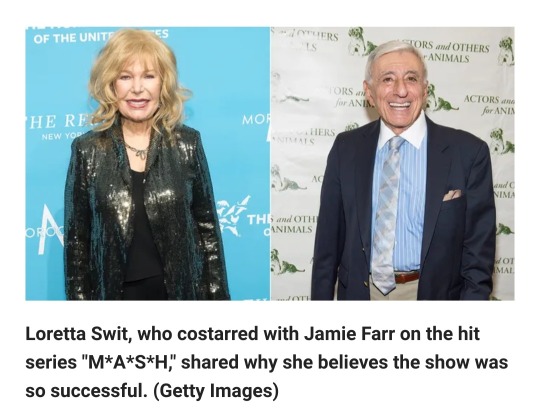
Reflecting on the show's major success, Swit credits it to the cast's on- and off-screen chemistry.
"Everyone liked coming to work," she said. "The camaraderie was unlike anything I ever experienced because we were all connected deeply. The chemistry was real, and the energy everyone brought to the set was off the charts, which was a part of the reason the show developed a huge/loyal fan base."
Laughter was also important for the show.
"Laughter and humor were our defense against standing in blood and working on bodies that were young enough to be in school," she said. "You needed the funniest people in the world to make this believable, and this cast exceeded that and more."
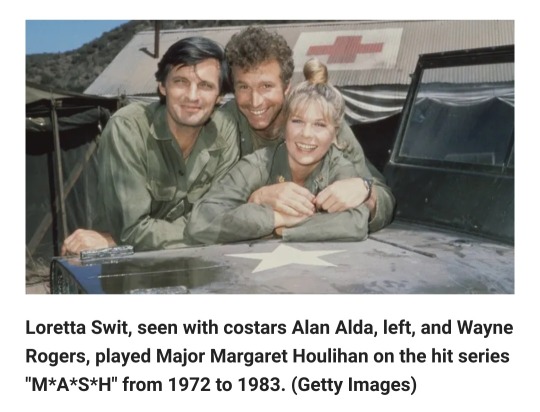
"M*A*S*H," which followed a team of doctors stationed in Korea during the Korean War, won 14 Emmy Awards throughout its 11-season run.
"Initially, when we started out, everyone wondered how we were going to be able to pull off a comedy about the war, but we did," Swit said.
In 2023, Swit opened up to Fox News Digital about how her character's nickname, "Hot Lips," has since stuck with her all these years.
"I understand nicknames come with great love and admiration for a character," the star explained. "But it was an insult as far as I was concerned. She wasn’t just a piece of anatomy. She was a major in the United States Army, and she should not be disrespected."
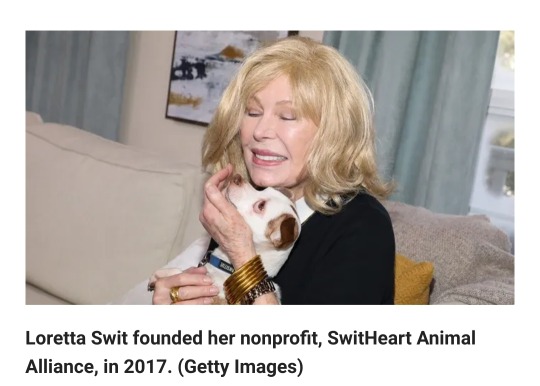
"This was a woman who had rank, who worked hard and wanted to be good at her job," Swit shared. "She was an inspiration. I was proud of her. I was proud to represent all the service women out there. I wanted to make a change."
Swit said she was also proud of being part of the celebrated show, so much so that she was worried the nickname would overshadow the heroic efforts of real-life service women, belittling them to a punchline.
"I didn’t want those women to be disrespected," the actress reflected. "Obviously, people are going to see it differently. Margaret did not see [the nickname] as a compliment. She saw it as disrespect. So, yes, I would say it was never a comfort zone."
These days, Swit continues her activism through her charity, SwitHeart Animal Alliance, and creating art.
In 2017, she published "SwitHeart: The Watercolor Artistry & Animal Activism of Loretta Swit," a book made up of 65 watercolor paintings and 22 photographs that also include personal stories.
#there is nothing particularly groundbreaking here#including the photos#but i chucked it all in for the craic#mash media#loretta swit#jamie farr#mash cast#if you saw me reblog the other one no you didnt xx
40 notes
·
View notes
Text
"What will you do without new shows" I haven't watched a mainstream television show as it released in years. I'm catching up on shows my parents liked in the 90s. I'm listening to fiction podcasts with 5 fans. I'm playing a video game the creators want you to pirate. I'm watching a minecraft roleplay. I may not know what I'm gonna do but I'm sure as hell not gonna be a fuckin scab babygirl.
#wga strike#sag aftra#sag aftra strike#podcasts#don't be a scab#drift speaks#I know it's more complicated than this and I am sympathetic toward folks who dont consume media in the manner I do#this is half for the internet funnies#also the media implied is west wing/mash; disco elysium#all minecraft roleplays and like every fiction podcast ever but especially#wolf 359#listen to wolf 359
6K notes
·
View notes
Text
I love that even though Klinger is known for his many elaborate outfits, you can still recognize a lot of his day dresses that get reworn throughout the series. He's not just a bit, the dresses are what he wears every day and most of them are meant to be comfortable and practical as well as beautiful. His wardrobe is pretty magical, but it's at least somewhat tethered to the reality of the army and his limited tent space.
#one of my pet peeves is longform media where characters never seem to wear the same thing twice#conversely i just adore when i can recognize specific garments and accessories that a character wears often#i too have a selection of Good Outfits that i will wear several dozen times a year#mash#mash 4077#m*a*s*h#mashposting#max klinger
438 notes
·
View notes
Text
I think it's fascinating that the quotes:
"Have you forgotten sir, we were at war? A fight with an alien race for the very survival of our species. I feel I must remind you that it is an undeniable, and may I say fundamental quality of man, that when faced with extinction, every alternative is preferable."
"When you spend every day fighting a war, you to demonize your attackers. To you, they're evil, they're subhuman. Because if they weren't, what would that make you? What I'm trying to say... is I've been afraid to see you for what you really are. You're our brothers. Our sisters. And the things we've done to one another are unforgivable."
"These guys want to use us, take us away from our families, and send us all over the dad-gum galaxy just to test if their agents are ready for the big fight? Well... guess I'm interested in showin' em exactly what a big fight is all about! So I'm not ordering you to go. I ain't even asking. You do what you gotta do, Private."
came from the same series whose standard fare is lines like:
"What in the hell are you two doing?" / "We're being executed by our own men, sir." / "Cut it out."
"I only drink the blood of my enemies, and the occasional strawberry yoohoo."
"You always said I could sleep when I’m dead, Sarge, and guess what? I am dead. This purgatory is about to become purga-snore-y, yawn!"
...and both categories manage to be a poignant statement about the nature of war and what it does to the people in it.
#everyone always talks about the more dramatic bits of rvb with the speeches and the 8+ seasons of plot development as the anti-war part#but the comedicization of the violence and death that the characters go through. the tongue-in-cheek gung-ho attitudes.#the way that they're so desensitized to the idea of death or gruesome injury to the point that it's!!! a comedy show!!!#all of that is just as much a statement of the fucked up nature of war!!!#it's like Col. Flagg and Frank Burns in M*A*S*H. they're so simultaneously into and detached from the war and it's a STATEMENT#idk I'm just. thinking about my favourite anti-war media. drawing mash-rvb parallels. and suddenly had to scream about it#might reread the paper on rvb being anti-war media. for enrichment.#not video games#late nights with ali#ali watches rvb#rvb#red vs blue
1K notes
·
View notes
Text
Im on season 2 of mash and ive determined that if this show came out today the same people who watched it religiously in the 70s would call it woke propaganda
#i love my anti-war anti-racist anti-homophobic(?) pro-human korean war sitcom#mash#mashblr#(obviously mash isnt very progressive by todays standards... but modern media has been called woke 4 less)
596 notes
·
View notes
Text
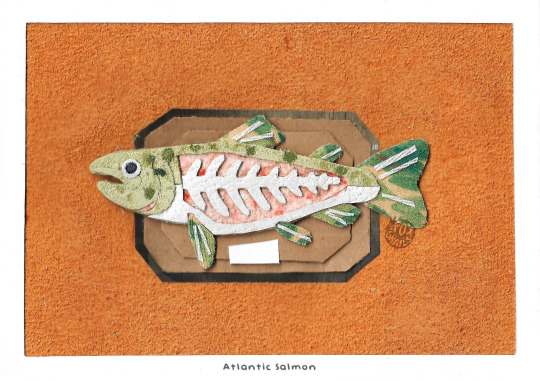
Collage Atlantic Salmon!
Finally putting my scrap collection to good use, I'm unable to draw much atm due to a cyst in my wrist so trying out different mediums recently is super refreshing :)
Prints and stickers of this guy will be on my shop soon!
#marine biology#marine life#sea creatures#fish#salmon#collage#collage art#mixed media#my art#the scan is a lil fuzzy bc he's very 3d and doesnt scan well#i scanned him 6 times and mashed em together
251 notes
·
View notes
Text

It’s spring, sir!
#mashposting#s03e06: springtime#mash#max klinger#mash 4077#m*a*s*h#corporal klinger#digital art#digital sketchbook#media: mash#char: klinger#char: henry blake#char: henry#medium: digital#mxmorel art#mxmorel art 2025
662 notes
·
View notes
Text
What Star Wars did with classic literature, Skeleton Crew did with Children’s literature
#LISTEN#the staple grand old heroic narratives of the past? mashed up into the Star Wars soup flavored with fun pulpy aesthetic from popular media#that was nostalgic for the people of the time right?#skeleton crew? takes the grand old staples of children’s literature#(treasure island Peter Pan wizard of Oz) and blends them all up and puts them into a popular media aesthetic that’s nostalgic for a lot of#people now (80’s children’s adventure fantasy movies)#same recipe different ingredients!#Star Wars#skeleton crew#skeleton crew spoilers
77 notes
·
View notes
Text

1K notes
·
View notes
Text
3rd best underrated jance moment in 2024 - loving each other's cooking




sources: [one] [two]
#jan is literally obsessed with nace's mashed potatoes#that sounds like a euphemism dsfhj#joker out#nace jordan#jan peteh#jance#2024#25.01.24#19.02.24#23.10.24#interview#london#social media
68 notes
·
View notes
Text
"What will you do without new shows" I haven't watched a mainstream television show as it released in years. I'm catching up on shows my parents liked in the 90s. I'm listening to fiction podcasts with 5 fans. I'm playing a video game the creators want you to pirate. I'm watching a minecraft roleplay. I may not know what I'm gonna do but I'm sure as hell not gonna be a fuckin scab babygirl.
#wga strike#sag aftra#sag aftra strike#podcasts#don't be a scab#drift speaks#I know it's more complicated than this and I am sympathetic toward folks who dont consume media in the manner I do#this is half for the internet funnies#also the media implied is west wing/mash; disco elysium#all minecraft roleplays and like every fiction podcast ever but especially#wolf 359#listen to wolf 359#disco elysium#west wing#mash#mcyt
7K notes
·
View notes
Text
pop music club ♪
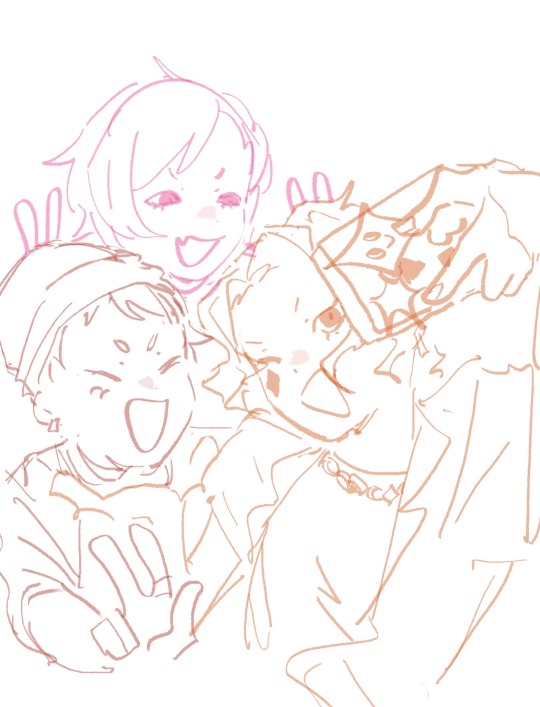
#pop club my beloved#what do u get when u mash a rich kid a social media luvr and a father into a group#absolute chaos#love them dearly!!!!#twisted wonderland#twst#kalim al asim#disney twisted wonderland#twst kalim#disney twst#lilia vanrouge#cater diamond#twst pop music club#twst lilia#twst cater#already in my flop era so im js doodlin LOL#wishing there were more events with the clubs in general#sob
416 notes
·
View notes